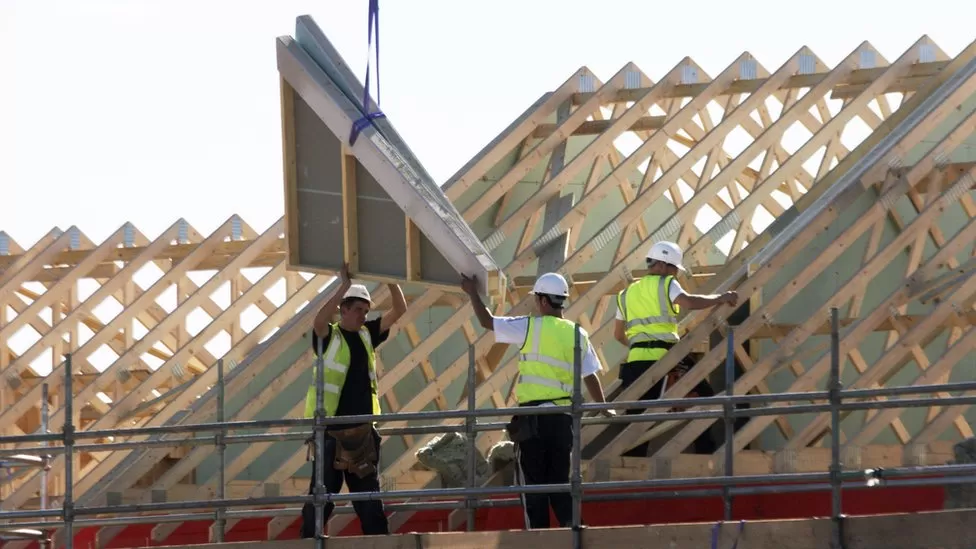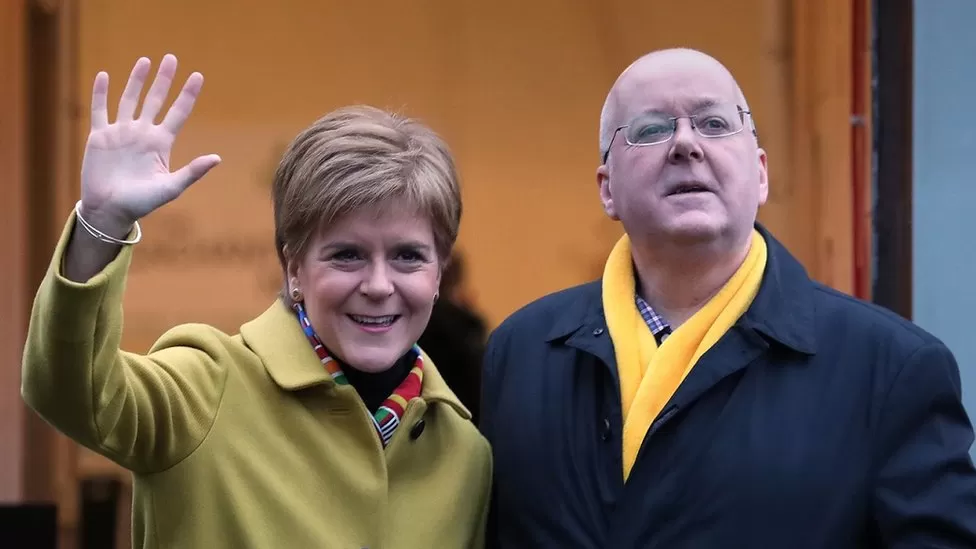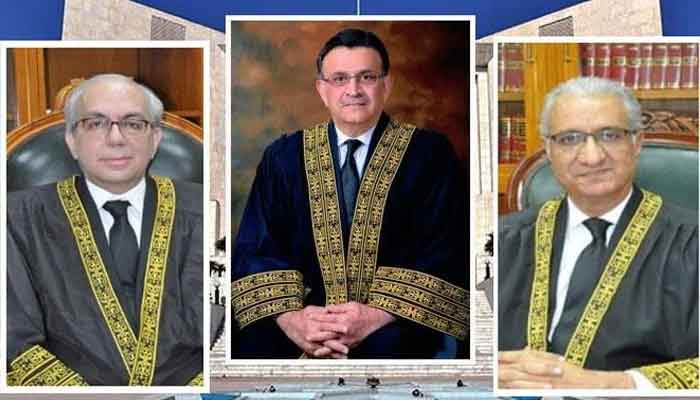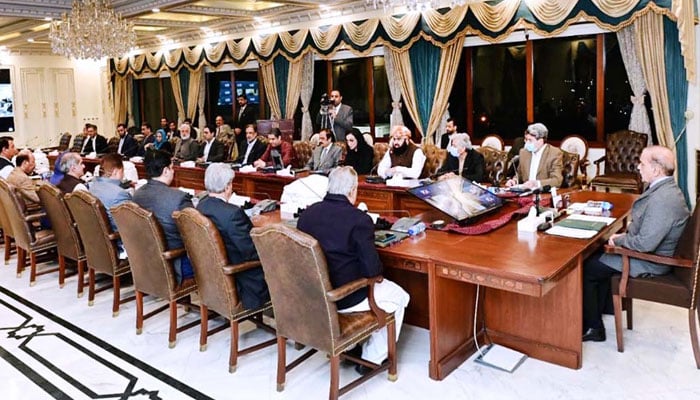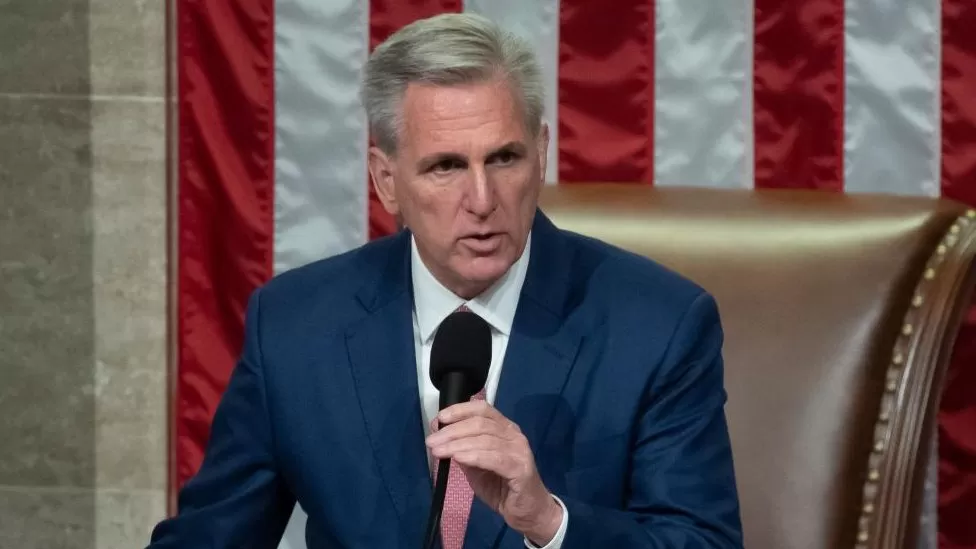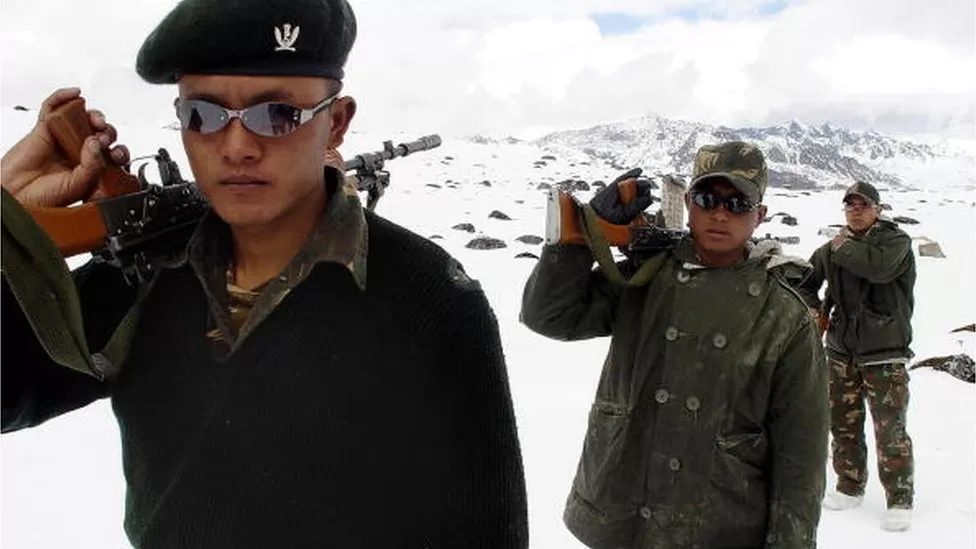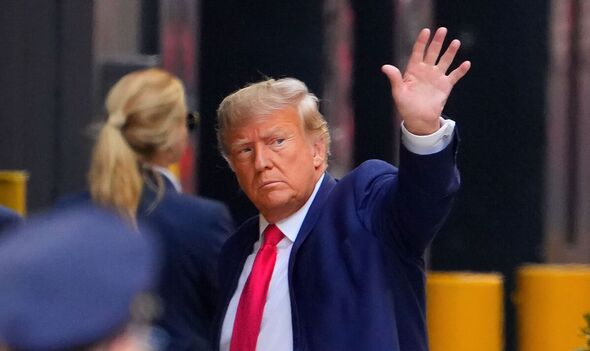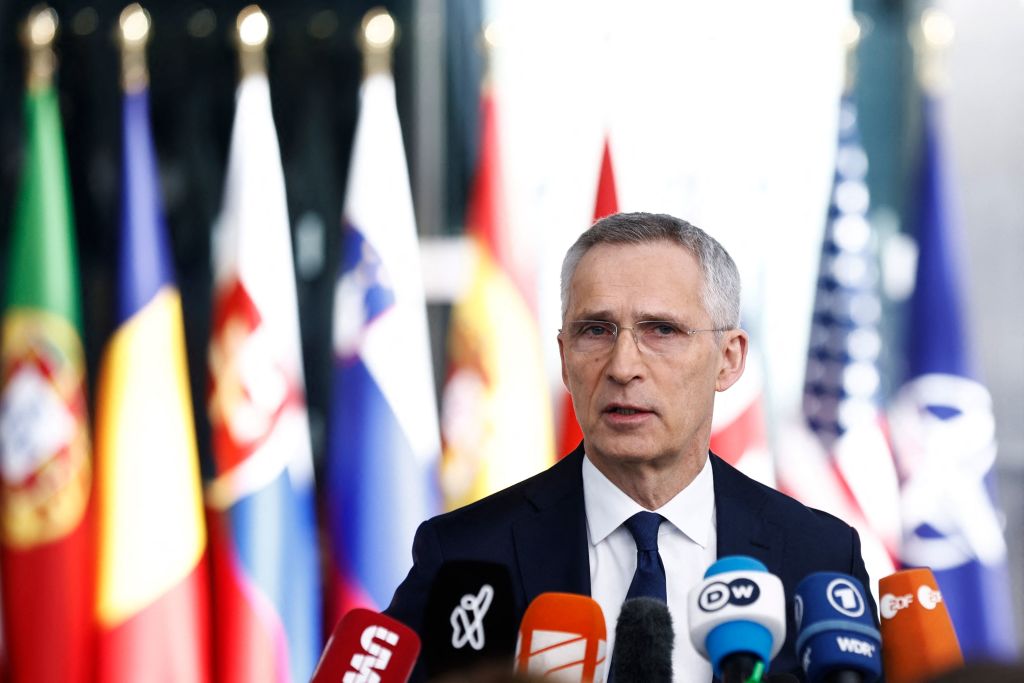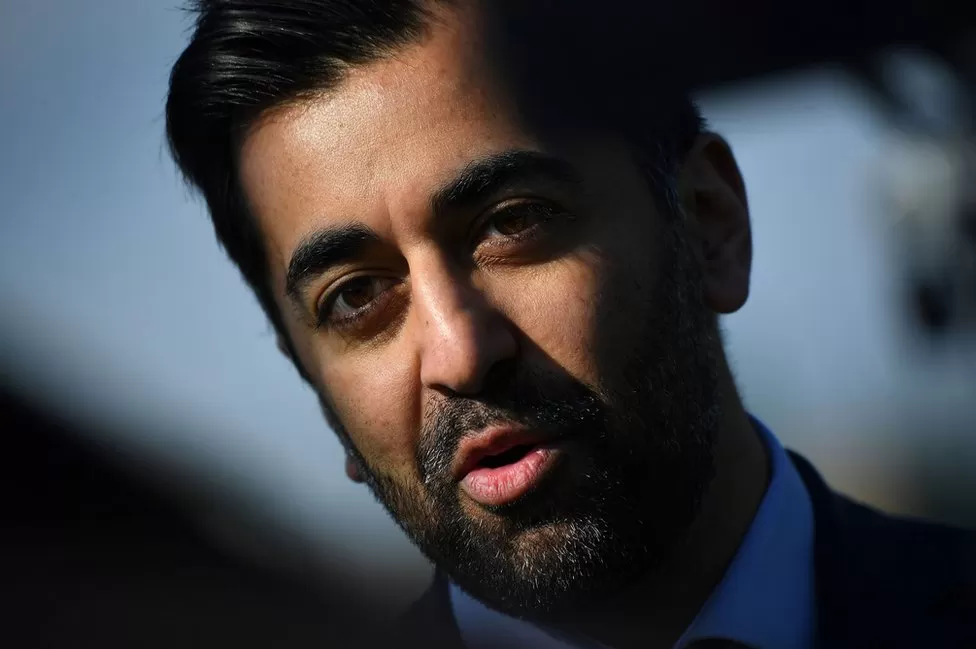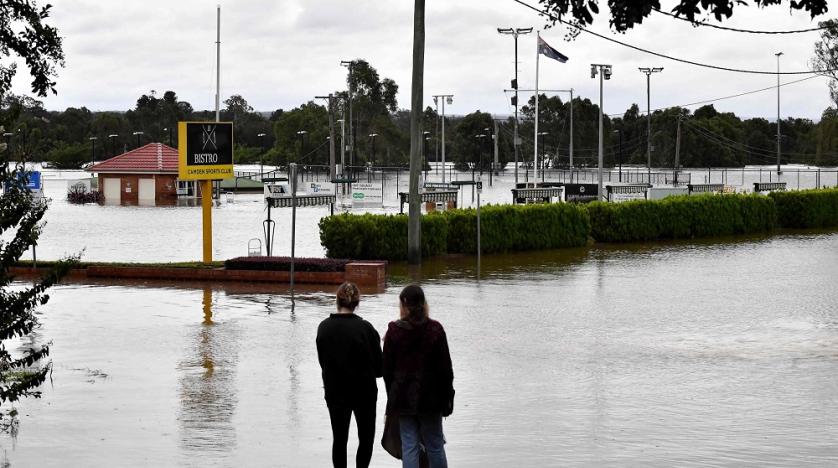ISLAMABAD: The Supreme Court (SC) on Tuesday declared the Election Commission of Pakistan’s (ECP) decision to postpone polls in Punjab and Khyber Pakhtunkhwa (KP) from April 30 to October 8 as ‘null and void’.
The decision was announced by a three-member bench headed by Chief Justice of Pakistan Umar Ata Bandial and comprising Justice Ijaz Ul Ahsan and Justice Munib Akhtar as members.
The Supreme Court, in its verdict, states that the ECP’s order dated March 22, 2023, is declared to be unconstitutional, without lawful authority or jurisdiction, void ab-initio, of no legal effect, and is hereby quashed.
“Neither the Constitution nor the law empowers the commission to extend the date of elections beyond the 90 days period as provided in Article 224(2) of the Constitution,” said the verdict.
The verdict said that the election programme for the general election to the Punjab Assembly stands “revived and restored” immediately with a few modifications.
Key takeaways from Supreme Court verdict
- ECP order of March 22 declared unconstitutional
- SC directs ECP to hold elections in Punjab on May 14
- Govt directed to provide Rs21bn in funds to ECP by April 10
- ECP asked to submit a report to SC on the issue by April 11
- Govt directed to share the security plan with ECP by April 17
- Apex court to continue hearing case regarding elections in KP
It added that the modifications were made as the programme had reached stage 5 when the ECP announced its order which “unlawfully purported to withdraw the election programme” and the remaining 6-11 stages could not be given effect to.
The verdict said that the remaining stages have to be moved forward to take account of the lost period as 13 days have been lost and the programme must be modified accordingly.
The apex court’s verdict also said that the polling day must be moved forward from April 30 to May 14.
Updated election schedule
Last date for filing appeals
against decision of returning officer rejecting/accepting nomination papers |
April 10 |
Last date for deciding appeals
by the appellate tribunal |
April 17 |
Publication of revised list of candidates
|
April 18 |
Last date for withdrawal of candidature and Publication of revised list of candidates
|
April 19 |
Allotment of election symbols
to contesting candidates
|
April 20 |
| Polling day |
May 14 |
It also stated that the electoral body had said that it would be able to organise and conduct the general elections in Punjab and KP if it was provided with aid and assistance by the “executive authorities”.
In line with its demand, the SC then ordered the federal government to release and provide ECP with funds worth Rs21 billion in any case by April 10 for general elections in Punjab and KP. It also directed the ECP to file a report on the issue by April 11
“The Commission shall, by 11.04.2023, file a report in the Court stating whether the said funds have been provided and received and if so, whether in full or in part. The report shall be placed before the members of the Bench for consideration in Chambers. If the funds have not been provided or there is a shortfall, as the case may be, the Court may make such orders and give such directions as are deemed appropriate to such person or authority as necessary in this regard. The Commission shall be entitled to utilise the funds in the first instance for the purposes of the general election to the Punjab Assembly. If there is thereafter a shortfall for purposes of the general election to the KPK Assembly, the Commission may make an appropriate representation to this Court for such consideration and orders as deemed appropriate,” said the verdict.
Moreover, the caretaker cabinet of the Punjab government, the chief secretary and the inspector general police (IGP) Punjab must provide a plan to the ECP including sufficient personnel for election duties and security purposes by April 10 for the polls.
It also directed the Punjab government and officials in the discharge of constitutional and legal duties should provide aid and assistance to the Election Commission.
“The federal government must, in the exercise of its powers and position in terms of Article 243(1) of the Constitution, and all other constitutional and legal powers enabling it in that behalf, and in the discharge of its constitutional duties under Articles 148(3) and 220, provide all such aid and assistance to the commission as required by it for the holding and conduct of the general elections to the Punjab and KP assemblies,” said the verdict.
The federal government has also been directed to make available all necessary personnel whether from the armed forces, Rangers, Frontier Constabulary and all other forces under the government’s direct, indirect or ultimate command and control.
The verdict also said that the federal government must provide a plan which should be acceptable to the ECP by April 17, adding that the commission must approach the Supreme Court if the federal and caretaker Punjab government fails to assist the ECP.
On the issue of the verdict’s majority, the verdict stated that the court’s attention was drawn to certain pending matters — SMC 1/2023 and CP Nos. 1 and 2/2023 — which were heard and decided by a five-member bench on March 1 by a majority of 3:2 (Umar Ata Bandial, CJ and Munib Akhtar and Muhammad Ali Mazhar, JJ; Syed Mansoor Ali Shah and Jamal Khan Mandokhail, JJ dissenting).
“In particular, our attention has been drawn to the detailed reasons of the two learned judges in minority (released on 27.03.2023), wherein it is, inter alia, stated that the said matters were decided (and dismissed) by a majority of 4:3. Respectfully, the position as claimed by the learned judges in minority is erroneous and not sustainable in law,” said the verdict.
It said that the attention has also been drawn to the March 29 order made in SMC 4/2022 by a majority of 2:1 by a three-member bench — Justice Qazi Faez Isa and Justice Amin-Ud-Din Khan, JJ; Shahid Waheed, JJ dissenting.
“The hearing of the present matter remained, and its decision by this bench is, wholly unaffected by any observations made in the aforesaid majority order,” it added.
Talking about the KP polls, the verdict said that the present petitioners have also sought relief, learned counsel who entered an appearance on behalf of the KP governor withdrew from such appearance on account of a certain stand taken by a political party which learned counsel was also representing.
“In such circumstances, the matter relating to the KP is not adjudicated upon, with permission granted to the petitioners to file such petition and/or seek such relief before such forum as is deemed appropriate,” the verdict said.
‘Verdict to further crisis’
Reacting to the SC order, Law Minister Azam Nazeer Tarar said he was sad over the ruling as it would worsen the ongoing political and constitutional crisis in the country
He once again prayed to the chief justice to constitute a 13-member bench to hear the recent important matters about the law and Constitution.
Addressing a news conference in Islamabad today, he said the dignity and writ of the Supreme Court demand such a course which will also serve the interests of the nation.
The law minister said Pakistan could not afford constitutional and political crises.
Pointing towards the division within the apex court, the minister said being head of the institution, it was the responsibility of the chief justice to do away with it.
Tarar said there should not be a confrontation between the institutions.
Responding to a question, he said the apex court’s decision regarding provincial government elections will be discussed in the federal cabinet being held today and the parliament.
Case background
The ECP had earlier set April 30 as the date for elections in Punjab, but later it was postponed to October 8 — in Punjab and KP as well — prompting the opposition party, Pakistan Tehreek-e-Insaf (PTI), to file a plea in the top court.
The apex court — which initiated proceedings on PTI’s petition on March 27 — reserved the verdict a day earlier, saying it would announce it the next day, April 4.
Ahead of the expected verdict, the Ministry of Defence submitted its report explaining the reasoning behind the army’s refusal to provide security for the polls.
As the top court accepted the plea and began hearing it on the same day, March 27, it held six hearings over eight days.
Initially, a five-member bench was formed, comprising CJP Bandial, Justice Khan, Justice Mandokhail, Justice Akhtar, and Justice Ahsan.
But on March 30, Justice Khan recused himself from the proceedings, citing a judgement from a three-member bench that halted proceedings under Article 184(3) of the Constitution.
Then, the bench was cut down to four members — CJP Bandial, Justice Mandokhail, Justice Akhtar, and Justice Ahsan.
On March 31, Justice Mandokhail also pulled out of the bench and noted that since he was not consulted before the formation of the bench, he would like to withdraw himself.
A new bench was formed comprising CJP Bandial, Justice Akhtar, and Justice Ahsan to hear the case.
The three-member bench, which announced the verdict, heard arguments from advocate generals of Punjab and KP, the attorney general for Pakistan, ECP’s lawyer, and secretaries of defence and finance.
While the hearing was going on, the coalition parties — comprising Pakistan Peoples Party (PPP) and Pakistan Democratic Movement (PDM) — sought the formation of a full court to hear the case.
But the top court rejected their request. The coalition parties have expressed distrust in the three-member bench and maintained they would not accept the decision.
Law Minister Azam Nazeer Tarar has also said the government will not accept a hasty Supreme Court’s decision on a sensitive and important issue.


